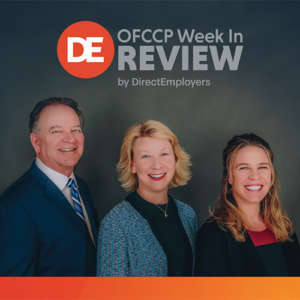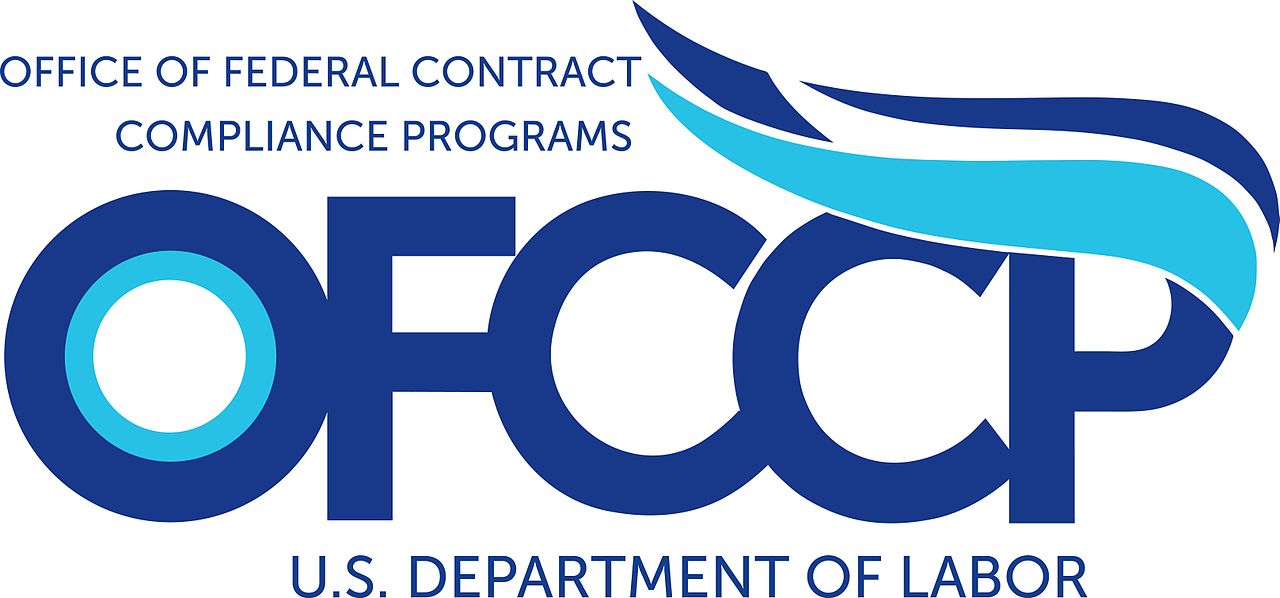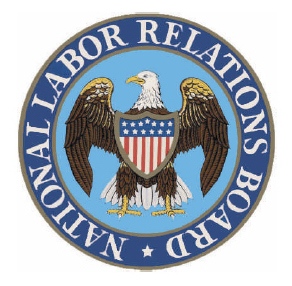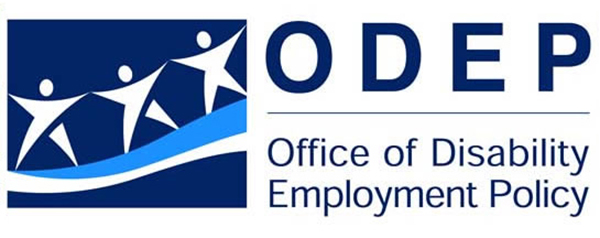 The DE OFCCP Week in Review (WIR) is a simple, fast and direct summary of relevant happenings in the OFCCP regulatory environment, authored by experts John C. Fox, Candee Chambers and Jennifer Polcer. In today’s edition, they discuss:
The DE OFCCP Week in Review (WIR) is a simple, fast and direct summary of relevant happenings in the OFCCP regulatory environment, authored by experts John C. Fox, Candee Chambers and Jennifer Polcer. In today’s edition, they discuss:
- OFCCP Immediately Set Up the “Complaint Hotline to Combat Race and Sex Stereotyping” Per Executive Order 13950
- NLRB Rejects House Committee on Education and Labor Subpoena: Cites Need for Confidentiality During the Pre-Deliberative Process
- Keith E. Sonderling sworn in as EEOC Commissioner and Vice-Chair
- The Federal Agencies Celebrated National Disability Employment Awareness Month and USDOL ODEP Offered Some Practical & Useful Employer Tools
- California Will Require Pay and Hours Worked Data Confidentially Reported By 10 “Wage Ranges” and 10 Job Categories by March 31, 2021 in a New Component 2 “Look-a-like” Reporting Law, plus a Bonus Feature Blog
- September Was Another Blockbuster Hiring Month; Unemployment Dropped a Full Half a Percentage Point to 7.9%, & Asians, Individuals with Disabilities and African Americans Outstripped the Percentage of White Hires For the First Time In This Pandemic
Monday September 28, 2020: OFCCP Immediately Set Up the “Complaint Hotline to Combat Race and Sex Stereotyping” Per Executive Order 13950
 After DirectEmployers published its Week in Review last Monday (September 28) reporting on The White House’s publication on the previous Tuesday (September 22) of Executive Order 13950 (“to Combat Race and Sex Stereotyping” in D&I training programs and other workplace activities), the Office of Federal Contract Compliance Programs (“OFCCP”) quickly updated its public contact webpage to add a Complaint Hotline email address and an OFCCP Hotline phone number: (202) 693-0103.
After DirectEmployers published its Week in Review last Monday (September 28) reporting on The White House’s publication on the previous Tuesday (September 22) of Executive Order 13950 (“to Combat Race and Sex Stereotyping” in D&I training programs and other workplace activities), the Office of Federal Contract Compliance Programs (“OFCCP”) quickly updated its public contact webpage to add a Complaint Hotline email address and an OFCCP Hotline phone number: (202) 693-0103.
The speed of OFCCP’s action in establishing these Complaint Hotlines underscores the importance The White House and USDOL attach to Executive Order 13950. At the same time, DirectEmployers companion blog (published last Monday to accompany its Week In Review story discussing Executive Order 13950) went viral, further underscoring the interest the public has in Executive Order 13950.
This is a story which is going to have legs.
Tuesday, September 29, 2020: NLRB Rejects House Committee on Education and Labor Subpoena: Cites Need for Confidentiality During the Pre-Deliberative Process

We earlier covered the story that The House Committee had initially issued its subpoena on September 15, 2020. In response, NLRB Chairman John F. Ring had issued a statement the very next day noting that the House Committee was not entitled to documents pertaining to the NLRB’s deliberative matter-specific documents.
The three documents the House Committee’s subpoena seeks are:
- a memo from the NLRB’s Designated Agency Ethics Official (“DAEO”) providing pre-decisional ethics advice to the NLRB on the joint employer rulemaking;
- a DAEO memorandum providing pre-decisional ethics advice to NLRB Chairman Ring and NLRB Member Emanuel regarding motions to recuse them in McDonald’s USA, LLC, Cases 02-CA-093893 et al.; and
- the categories the NLRB staff developed to sort, summarize, and analyze the approximately 29,000 public comments received in response to the joint employer rulemaking.
In opposing release, Solicitor Jacob cited several court decisions regarding a federal agency’s interest to protect its deliberative processes from disclosure. The Commission also resisted disclosure citing to a number of ethics decisions which recognized the Board’s need to avoid undue Congressional influence. The Board also cited concerns that Congressional oversight into pending administrative matters can sometimes deny parties the due process to which they are constitutionally entitled.
The ball is now in the House Committee’s court to determine how to respond to the NLRB’s recalcitrance in this continuing battle to determine which company affiliations create a “joint employer” relationship pursuant to the National Labor Relations Act.
Wednesday, September 30, 2020: Keith E. Sonderling sworn in as EEOC Commissioner and Vice-Chair

With Mr. Sonderling now on-board at the Commission, only Andrea Lucas (R) and Jocelyn Samuels (D), who the Senate confirmed in the prior week along with Mr. Sonderling for appointments to the Commission, remain to be sworn in as Commissioners of the EEOC. The coming swearing in of Ms. Lucas and Ms. Samuels will fill the Commission’s allotment of five Commissioners. With the addition of Mr. Sonderling, the EEOC currently has four members, for the moment, as Commissioner Victoria Lipnic (R) continues to serve on the Commission in a holdover capacity until the EEOC can swear in her replacement, Ms. Lucas, into office. EEOC Chair Janet Dhillon (R) and Commissioner Charlotte Burrows (D) round out the current Commission foursome.
Thursday, October 1, 2020: The Federal Agencies Celebrated National Disability Employment Awareness Month and USDOL ODEP Offered Some Practical & Useful Employer Tools

“The EEOC is here to prevent and remedy unlawful employment discrimination and advance equal opportunity for all in the workplace for people like Itzhak Perlman and countless other people with disabilities. The EEOC will continue to make sure that employers treat people fairly, so they will see and appreciate their talents.”

Click on the word “ODEP” at the beginning of this paragraph to get to ODEP’s Disability Awareness Month Landing Page.
Then scroll down to the lower left of ODEP’s Landing page and click on the “Plan NDEAM Observances” headline.
Then click on the employers section to find the below introduction exposing you to a day-by-day activity calendar for October and also to activities employers may adopt to support individuals with disabilities and reasonable accommodations throughout the year:
“Activities conducted by individual employers and their employees are an important part of National Disability Employment Awareness Month (NDEAM). The ideas below are just a few ways they can participate, during October and all year long.”
 OFCCP: OFCCP took a “velvet glove” approach, blending the “tough guy” enforcement message from the EEOC with the upbeat “go for it employers” coaching approach of ODEP:
OFCCP: OFCCP took a “velvet glove” approach, blending the “tough guy” enforcement message from the EEOC with the upbeat “go for it employers” coaching approach of ODEP:
“This October, the Office of Federal Contract Compliance Programs (OFCCP) joins the U.S. Department of Labor’s Office of Disability Employment Policy in celebrating 75 years of National Disability Employment Awareness Month (NDEAM).
NDEAM celebrates America’s workers with disabilities and reminds employers of the importance of inclusive hiring practices. This year’s theme is ‘Increasing Access and Opportunity.’
OFCCP works each day to ensure the protection of workers with disabilities in the workplace and that federal contractors understand their obligation to maintain a disability-inclusive workplace. OFCCP provides contractors with meaningful compliance assistance, including technical assistance and guidance on providing accommodations to their workforce and applicants in all aspects required by equal employment opportunity laws. Here are a few of our initiatives that promote disability inclusion and reasonable workplace accommodations.”
With those words, the OFCCP then went on to explain its tools to promote inclusion: “Accommodation Pocket Card” and the use of two of its Focused Review investigative tools (Section 503 Focused Reviews and Accommodation Focused Reviews). Oddly, however, OFCCP’s Web Notice made no reference to its Veterans Focused Reviews (which also examine disability and accommodation issues surrounding Protected Veterans).
Wednesday September 30, 2020: California Will Require Pay and Hours Worked Data Confidentially Reported By 10 “Wage Ranges” and 10 Job Categories by March 31, 2021 in a New Component 2 “Look-a-like” Reporting Law
The Bill California Governor Newsom signed into law on the last day of the California’s 2020 legislative session is SB-973. Continuing California’s open fight with the Trump Administration, the California Legislature stated the Bill’s intent this way:
Section 1 (d): “(d) Recognizing that pay discrimination is difficult to detect and address, the Obama Administration announced a proposed revision to the Employer Information Report (EEO-1) to include the reporting of pay data by gender, race, and ethnicity beginning in 2018. However, in August 2017, the Trump Administration put a halt to the implementation of this new rule.
(e) It is the intent of the Legislature, in enacting this bill, to ensure that this pay data will continue to be compiled and aggregated in California.”
She’s Back
The bill amends Section 12930 of the California Government Code to add a new Section 10 beginning at Section 12999 and to authorize the California Department of Fair Employment and Housing (“DFEH”) to collect an “Annual Pay Data Report.” DFEH enforces the state of California’s employment and housing non-discrimination laws. Its Chief Counsel is Janette Whipper, who was briefly OFCCP’s Regional Director for the San Francisco-based Pacific Region during the middle of the Obama Administration and one of the several architects of OFCCP’s strategy to attack federal Government contractor compensation practices, primarily as to the pay of professional women.
SB-973 also allows DFEH to share its content with the California Division of Labor Standards Enforcement (“DLSE”) within the California Department of Industrial Relations, the state enforcement arm of California’s wage and hour laws. Section 1(f) of the Preamble to SB-973 describes the intended use of the data to allow these state agencies to undertake “targeted enforcement of equal pay or discrimination laws, when appropriate:”
“(f) Further, it is the intent of the Legislature in enacting this bill for data collection purposes to allow for the designated state agencies to collect wage data to more efficiently identify wage patterns and allow for targeted enforcement of equal pay or discrimination laws, when appropriate. [emphasis added] Therefore, it is the intent of the Legislature that this pay data will be kept confidential and not available for disclosure, except as necessary for administrative enforcement or through the normal rules of discovery in a civil action.”
Key Requirements of SB-973: Annual Pay Data Report
If you want the full gory details, please read the bonus blog by clicking on the image below.
Friday October 2, 2020: September Was Another Blockbuster Hiring Month; Unemployment Dropped a Full Half a Percentage Point to 7.9%, & Asians, Individuals with Disabilities and African Americans Outstripped the Percentage of White Hires For the First Time In This Pandemic

In a large boost to diversity concerns, Asian, Individuals with Disabilities and Black hiring led the parade of hires this September. (CONGRATULATIONS employers by heeding the call to step-up the pace of hiring minorities and Individuals with Disabilities which had been lagging the percentage of White hires in the last two months during a period of a modern record-setting number of hires.) While the percentage of Asians, Individuals with Disabilities and Blacks unemployed enjoyed the biggest reduction of all Protected Groups in September, the percentage of unemployment of people of color and those with disabilities still far exceeds White unemployment. For example, Asians are still a full two percentage points behind the White unemployment percentage, Individuals with Disabilities are a full 5.5% behind Whites and African Americans are still 5+ percentage points behind Whites. Take a look below:
| End of Aug 2020 | End of Sept 2020 | Monthly Change | ||
| Unemployment rate | 8.40% | 7.90% | -0.50% | |
| White | 7.30% | 7.00% | -0.30% | |
| Black | 13.00% | 12.10% | -0.90% | |
| Asian | 10.70% | 8.90% | -1.80% | |
| Hispanic | 10.50% | 10.30% | -0.20% | |
| Veterans | 6.40% | 6.40% | -0.00% | |
| Disabled | 13.2% | 12.5% | -0.70% | |
THIS COLUMN IS MEANT TO ASSIST IN A GENERAL UNDERSTANDING OF THE CURRENT LAW AND PRACTICE RELATING TO OFCCP. IT IS NOT TO BE REGARDED AS LEGAL ADVICE. COMPANIES OR INDIVIDUALS WITH PARTICULAR QUESTIONS SHOULD SEEK ADVICE OF COUNSEL.
SUBSCRIBE.
Compliance Alerts
Compliance Tips
Week In Review (WIR)
Subscribe to receive alerts, news and updates on all things related to OFCCP compliance as it applies to federal contractors.
OFCCP Compliance Text Alerts
Get OFCCP compliance alerts on your cell phone. Text the word compliance to 55678 and confirm your subscription. Provider message and data rates may apply.

